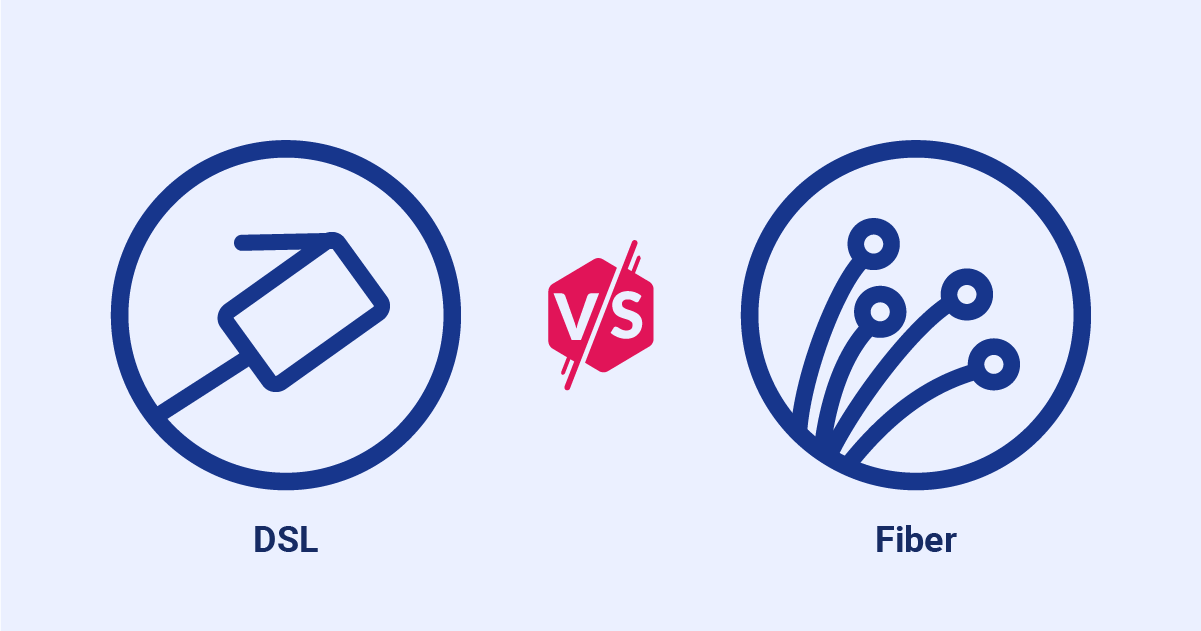Will Paying for Faster Internet Improve My Wi-Fi Speed?
How to get the speed you need without overpaying
Mar 21, 2023 | Share
FAQ
Yes, upgrading to a faster internet plan should improve your Wi-Fi speed if your provider isn’t giving you the speed you need, but that’s not always the actual issue. If your Wi-Fi is slow, there are two possible bottlenecks: your internet service provider (ISP) or your router. Let’s take a look at how to deal with each type of problem.
How fast is my Wi-Fi?
The first step is figuring out how fast your Wi-Fi is compared to the advertised speed of your internet plan. To do this, download our free, easy-to-use speed test app for quick and reliable results, and see how fast your internet is on your phone.
If your test result is slower than the speeds promised by your internet plan, try plugging your device directly into the router using an ethernet cable. If this fixes your problem, the issue is probably with your router. Fortunately, there are several ways to increase the speed of your router.
If you’re still getting low speeds, or if the speed you’re paying for just isn’t enough, it might be time to upgrade to a faster plan.
The first step is figuring out how fast your Wi-Fi is compared to the advertised speed of your internet plan. To do this, set up your computer where you normally work and take an internet speed test.
If your test result is slower than the speeds promised by your internet plan, try plugging your device directly into the router using an ethernet cable. If this fixes your problem, the issue is probably with your router. Fortunately, there are several ways to increase the speed of your router.
If you’re still getting low speeds, or if the speed you’re paying for just isn’t enough, it might be time to upgrade to a faster plan.
Enter your zip code below to see internet providers in your area
How to speed up your Wi-Fi router
There are a few things you can do to speed up your Wi-Fi router. The first thing to do is simply turn it off and on again, also known as power cycling, which will often fix your Wi-Fi problems.
The next easiest thing to do is to try moving your router or your other Wi-Fi devices. Wi-Fi signals can be blocked by thick walls or floors, so moving devices around so that they have the most direct line of sight to the router can improve signal quality. If line of sight and dead zones are a constant problem, you can also set up a mesh router system to ensure strong Wi-Fi throughout your home.
You can also adjust your router’s settings to improve its performance. Many routers have apps that will allow you to monitor and control the devices on your wireless network. For more information, check out our article on how to improve your Wi-Fi speed.
It’s also worth noting that even if your router is working perfectly but is slower than the internet you’re paying for, you’re not going to be able to take advantage of that speed over Wi-Fi. If this is the case, check out our list of the fastest routers for gigabit internet to make sure you’re able to use the speeds you’re paying for.
Troubleshooting a slow connection
If your router isn’t the problem but you’re still getting lower speeds than you expect, there might be a problem with your internet connection. Before you start looking for a new ISP, it’s worth checking to see if this problem has an easy fix like one of these:
- Power cycling your router
- Moving your router
- Avoiding peak hours
There are also more involved fixes that can improve your speed. Different types of connections can slow down for different reasons. Follow our troubleshooting guide to see if it’s an issue that you can fix yourself.
How to upgrade your internet connection
If your internet connection suffers from problems you can’t fix yourself or it’s working correctly but you still need more speed, it’s probably time to upgrade.
Before you crack open your piggy bank, know that faster internet doesn’t always mean paying more. Often simply switching from a slower type of connection to a faster one (like switching from satellite to DSL or from cable to fiber) will give you faster speeds and more stable connections for the same price you were paying before.
| Technology | Pros | Cons |
|---|---|---|
| Fiber | ● Fastest speeds ● Most reliable connections | ● Limited availability |
| Cable | ● Fast speeds | ● Slowdown at peak hours |
| 5G | ● Fastest wireless speeds | ● Limited availability |
| Fixed Wireless | ● Fast speeds | ● Limited availability |
| 4G LTE | ● Increasing availability | ● Slower speeds ● Data restrictions |
| DSL | ● Wide availability | ● Slower speeds ● Outdated technology |
| Satellite | ● Near nationwide availability | ● Slower speeds ● High latency ● Data restrictions |
Before you make a decision, be sure to check out all the ISPs in your area with our zip tool above and see which ones offer the speeds you want for the best value.
Pro tip:
Are you looking for the fastest internet available? Check out our report on the fastest internet service providers according to the results of our speed test.
Make sure your router can keep up with your new connection
If you do upgrade your internet plan, make sure your Wi-Fi router is at least as fast as your new download speed. If you got your router from your ISP, this shouldn’t be a problem. But if you bought your own, make sure that it can keep up with the new connection speed or you’ll be back at square one. For example, if you have a gigabit internet connection, you need a gigabit router to take advantage of that speed.
FAQ about Wi-Fi speed
Does increasing my Wi-Fi speed increase its range?
Is it worth upgrading your Wi-Fi speed?
What is a good Wi-Fi speed?
Is 100 Mbps Wi-Fi Fast?
Author - Peter Christiansen
Peter Christiansen writes about satellite internet, rural connectivity, livestreaming, and parental controls for HighSpeedInternet.com. Peter holds a PhD in communication from the University of Utah and has been working in tech for over 15 years as a computer programmer, game developer, filmmaker, and writer. His writing has been praised by outlets like Wired, Digital Humanities Now, and the New Statesman.
Editor - Aaron Gates







